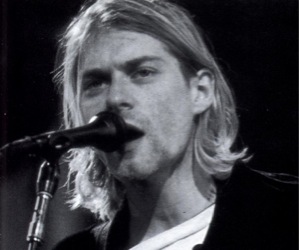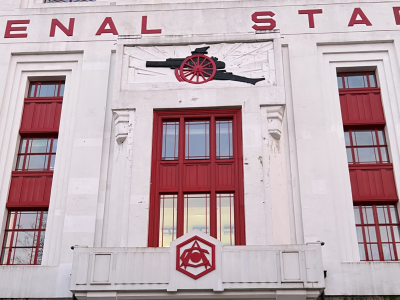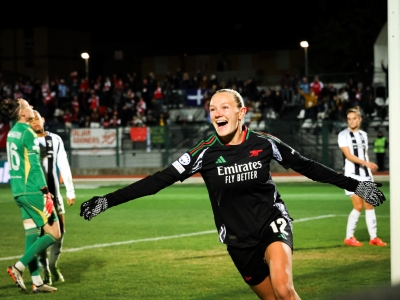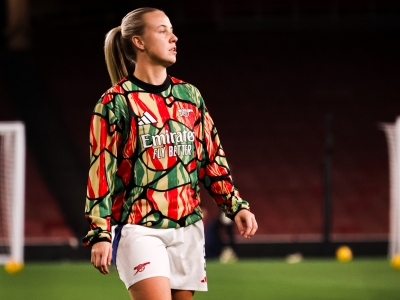For those of you who actually recognise the names of the authors of Gooner articles, either online or in print, you may note from mine that I often like to throw in a musical analogy here and there to put my footballing point across. The big recent news within the music world is obviously the untimely demise of Whitney Houston. Now, some, in paying tribute to her, have accorded the former Mrs Bobby Brown the status of a legend. Personally, I wouldn’t go that far. There are some that likewise might wish to refuse Arsène Wenger his legendary status within the football world. Again, not me. Here’s an article I wrote back in August, reprimanding those who I felt were being revisionist in regard to Wenger’s past glories, pre-2005, where I used the analogy of the early to mid-1980s career detritus of Stevie Wonder and Paul McCartney to show that, even if your contemporary efforts are woefully below-par, it doesn’t necessarily mean you were never previously a genius in your chosen field. From the latest Gooner podcast, it looks like I’m not alone in drawing this analogy – Marc Ollington compares Wenger’s post-2005 malaise to David Bowie’s post-Scary Monsters career-lull.
Reflecting on the demise in recent years of Whitney, Amy Winehouse and Michael Jackson, it’s clear that there are two kinds of untimely death in the rock and roll world – ones whose end came relatively quickly while they were still on top of their game, i.e. Hendrix, Marley, Lennon, Cobain, Buddy Holly, and those whose decline and ultimate end was a slow, well sign-posted and utterly painful-to-watch demise, where the individual concerned had long become a figure of ridicule, to the point where many forgot what actually made them great in the first place, such as the three aforementioned deaths which have occurred since 2009 (and you can probably throw Elvis and his drugs and burger-quaffing issues, which ultimately came to a head in 1977, in with that category too). The demise of a football managerial legend, however, seems to be not much different.
You can see Mourinho’s footballing suicide at Chelsea as not much different to Kurt Cobain’s - still on top of his game, but driven to take the drastic action by his demons (in this instance, Roman Abramovich is the equivalent to the burning, nauseous stomach-pain Kurt refers to in his suicide note). Arsène Wenger sadly looks to be in the Whitney/Winehouse/Jacko category – the latter’s demise being almost an exact Xerox copy of Wenger’s. If you want a clear example, look at this footage of MJ’s performance at Motown 25; then watch this from the Brits in 1996. Now, look here at footage from Arsenal in the 2003/04 ‘invincible’ (oddly enough, also a Jackson album-title) season, and then watch this clip from this year’s FA Cup exit – tell me that your emotional reaction from one to the other is not almost identical!
Even that compilation, played before Michael Jackson’s entrance at the Brits, is eerily similar to that played at the E******s before ‘The Wonder of You’ and the player’s entrance. Alex Oxlade-Chamberlain’s posture after scoring his own goal, in the back of the net with his posterior pointing in the direction of the dug-out, is also oddly similar to that of Jarvis Cocker’s in Jacko’s direction back in 1996. There are also many other parallels – both Jackson and Wenger seemed to have declined when they were elevated to omnipotent, god-like status with a ‘Jesus’ complex, and both were a lot better and more successful when they were more like an important central cog in a well-functioning machine. The Motown songwriters and producers played a big part in the success of the Jackson Five, alongside Michael’s talent. Jacko’s early solo success also owed a lot to Quincy Jones’s production and Rod Temperton’s songwriting – again alongside Jackson’s extraordinary singing-talent and stage-presence. Post Bad, Michael Jackson had almost total control of his output – and the output, along with his sanity, sadly declined. Similarly, even though Wenger’s managerial talent was the main contributor to our success between the years 1998-2005, an enormous amount of credit has to go David Dein behind the scenes and the influence of the senior players he inherited from previous managers – all of whom have now long since moved on, while the current board and those around Wenger are pretty much inclined to massage Wenger’s ego in the way that many of Jackson’s lackeys probably did in his last two decades in this mortal realm.
Also, both were immortalised by their own statues, even though they were both still in active service at the time the images were commissioned – though, in mitigation, Wenger’s was initiated by a sycophantic board of directors (where is Ferguson’s statute at Old Trafford?) as opposed to Jackson’s self-commissioned likeness which was famously pulled along the Thames as an act of self-promotion back in 1995. Both also are/were prone to egotistical outbursts which became more difficult to defend or make excuses for – and those who continued to do so out of adulation/recognition of past glories were usually an increasingly odd-looking bunch without a sense of objectivity or a firm grip on reality themselves (i.e. a lot like people singing ‘One Arsène Wenger’ at every match at the E*****s this season). Both also made symbolic friendships which boosted the egos of mega-rich Arab businessmen – in Jackson’s case Mohammed Al Fayed, Wenger’s being Sheikh Hamad Bin Khalifa Al-Thani, the Emir of Qatar and owner of Paris St Germain, with whom Wenger has been linked in an advisory capacity.
The sad fact is that Wenger had the chance to do a Cobain of his own – in 2007, after David Dein’s departure. As reported in ‘Arsenal: The Making of a Modern Superclub’, co-written by the Gooner Editor with Alex Flynn, Wenger is reported to have asked Dein whether he wanted him to resign in support. Dein advised him not to, he didn’t and any Arsenal fan who says they were disappointed to hear this in 2007 is an outright liar. Life, however, is not always that simple. Some things that may look on the surface like they are a 100% positive or negative are not always so (for instance the word Manslaughter can be also be read as Man’s Laughter if you look at it a different way!). The early gun-related demise of Lennon or Cobain may have robbed a wife and children of their father, and may have left a generation shocked and stunned beyond words – it did, however, spare us of their very own equivalent version of the Frog’s Chorus or Earth (or should that be Dearth) Song! A generation of Arsenal fans would have been shocked beyond belief if Wenger had resigned in 2007. We might have been tortured with what might have been, but we would have been spared the MJ-esque professional and personal decline that followed. All successful Arsenal managers, even after their decline, are often well remembered with the lapse of time. GG is mainly remembered for the verve and glory of 1987-92 and not for his white-collar crime and his boring team of drunkards in 1995. In the Phibbers Bar in Holloway Road on Saturday, I even had an elderly, albeit drunken, Irishman tell me that this would never have happened under Terry Neill and his team of Irishmen – seemingly forgetting the years 1980-83 or the absence of a league title. Therefore, it is true to say that, when we are looking back in the dim and distant future on the Wenger years, it will be the ‘Invincibles’ of 2004 and not the ‘invisibles’ of 2012 for which he will be primarily remembered. Arsène Wenger has spent time in Japan, and may well be fully aware of their (albeit extremely dubious) tradition of the ‘honourable’ suicide. Please Arsène, (and I must heavily stress I only advocate this in a professional sense...), please do the decent thing!







